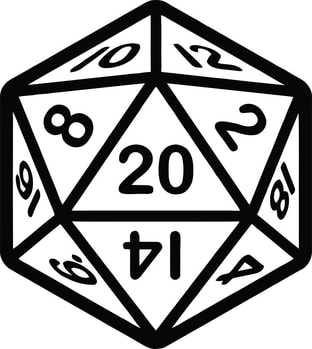 Who am I? Who has the Keys to my beemer? The philosopher Beenie Man first wrestled with these questions on his 1997 dance hall classic "Who Am I" and ever since modern humans have stared into the black spaces between stars, clawing at their skin, mouths agape and drooling while wondering "Who Am I?" Self-awareness is unfortunately a quality which many of us lack. Some of the lesser sages such as Socrates have insisted that the un-examined life is not worth living yet it seems like some of us are full on blundering through existence like a blind person wearing oven mitts. While there are many books written about attempts at self-help and reinventing our lives most people don't make any kind of concerted effort to really develop a sense of self that doesn't include colors or cola preferences. There are a few different ways that people have tried to rate, grade and discover themselves most of these fall short of really uncovering our true selves. The library has recently started to host games of Dungeons & Dragons for middle schoolers and this reminded me of a quote by American moralist Kurt Vonnegut: "We are what we pretend to be, so we must be careful about what we pretend to be" This got me thinking, what exactly are people pretending to be? D&D gives people a chance to pretend in a creative story telling setting. Many modern people mostly pretend that they aren't crying at work or that things are going to 'be ok' while the oceans die and bacteria gets stronger, better, faster. Because we are finite almost chimps with a will to power the reality of somatic life brings us into constant conflict with others as we jostle for position and prestige. As a remedy to this situation there are a couple of common tools of "industrial psychology" as well as folksy astronomy which have been utilized to tell people where they fit into this human zoo that we call civilization. Probably the most common every day way to classify people's talents and personalities is an ancient one, Astrology. Simply read the back pages of the newspaper, just to the left of Zits and south of Garfield is your day spelled out by what I assume is a wizened old crone hunched over a gnarled word processor. Science cant explain how Astrology works, maybe because it does not. Does gravity or dark matter play some part in determining your personality? Maybe something about seasonal bacteria and its epi-genetic effects? Yea sure. I remain skeptical, although a quick thumb through our book What your birthday reveals about you: 366 days of astonishingly accurate revelations about your future, your secrets, and your strengths is weirdly surprising and somewhat accurate. My own personal zodiac does line up with my personality, probably because of the position of some exploding balls of hydrogen that some Greek dudes thought looked like a fish. Very plausible, very real, watch out Mercury is in retrograde until May. The personality assessment that most of us have taken in school or in preparation for employment is the Meyers-Briggs Type Indicator, which separates people into sixteen categories with four different metrics for each personality type. The big two are the person's affinity towards Introversion or Extroversion; whether or not you like to speak in public or rather hide under a desk for a while. Once again my own personal experience is that the MBTI explains your preferences for proximity to other people, but try introducing yourself as an INFP (4% of the population AKA the human unicorn along with Bjork, Kurt Cobain and Van Gogh- who would have started a hell of a band) or an ESTP (10% of the population like Teddy Roosevelt or Madonna, who would have dated for sure. The Bull Moose & Material Girl together forever) and see if anyone even knows what that means. Here in the Roaring Fork I was introduced to Dr. William Moulton Marston's DiSC assessment, which is pretty popular if you work for one of the local Aspen institutions, but has a mysterious and strange history. William Marston is best known for the following things, being the creator of "Wonder Woman," being an practitioner of polyamory and inventing the precursor to the polygraph. I would title a book about Marston's life "1920's Shades of Gray". (The actual book about his life is called "The Secret History of Wonder Woman" and the film "Professor Marston and the Wonder Women is now available in our new DVD section). If you've been DiSC'd you should read this book. The most important thing about the DiSC assessment is that you absolutely must score a D for dominant, meaning that you are a boss, like Rick Ross. Anything you do to achieve this result is justified. Lie, cheat, steal, whatever you gotta do must be done because this is your career in the balance. It’s not like you could just get your wife and your girlfriend to do all your work for you like Professor Marston did. And yes, Marston did take credit for much of the work of his partners Olive Byrne and Elizabeth Marston, but that's a totally acceptable D move. The other thing you should know is that there is a single beer limit (of Colorado Kool Aid no less) at the DiSC after party dinner at a billionaire's house near the river. After your banquet beer you will get a healthy lecture about active listening from someone that makes more money in a week than you will in your entire life. I think i could do much with a few billion. Honestly you should give me a couple of millions of dollars so that I can buy centrifuges for the library and enrich enough uranium to develop nuclear weapons. Then we could declare the Basalt Regional Library a Sovereign Nation and get rid of all late fees. And after this the Library will invade and colonize the Woody Creek Tavern. Maybe launch a sneak attack on Crested Butte too. Or pay a bunch of strangers medical bills. Whatever might make the world a better place. D&D lets you not only choose what kind of creepy medieval fantasy character you want to be, it asks you how that Orc Shaman gets things done. The how is what's more important. D&D has 9 categories to choose from arranged from good to evil and lawful or chaotic. For character reference the scale goes like this at its extremes Lawful Good v. Chaotic evil or Luke Skywalker v. The Joker. This Harry Potter Chart is probably more what you are into, but the character grades remain the same. All characters fit into that scale somewhere. The character you choose to play as for the next two hours says everything about how you would like your own personal human experience to play out. Unlike the MBTI or DiSC systems which ask you to reveal some hidden aspect of yourself, like spraying Windex on the dark glass of your soul, D&D lets you choose what your ideal self could be. When facing the challenges of living, the Trolls of daily life, Mindflayers and Demogorgons of love or finance we ultimately get to choose how to attack these problems. Will you return the gold ring you found in the street, sell it and donate the money to the poor, or hold it for ransom? Would I use the threat of Thermonuclear war to get one of our patrons to return our copy of A Cure For Wellness? According to my D&D alignment, probably not. I might wave your fines if you get me a new copy from the Walmarts. That's just the kind of Chaotic Good person I choose to be. Take the D&D alignment test here and post your results in the comments! Matt CleerI was born a fool, don't want to stay that way.
1 Comment
3/22/2023 05:31:54 am
I really appreciate your time & efforts in creating this information
Reply
Your comment will be posted after it is approved.
Leave a Reply. |
Adult News & reviewsLibrary news, info about upcoming events, reviews of books and films, and a look at the topics that affect us as a library. Archives
July 2023
|
General |
Borrowing |
About |

 RSS Feed
RSS Feed
